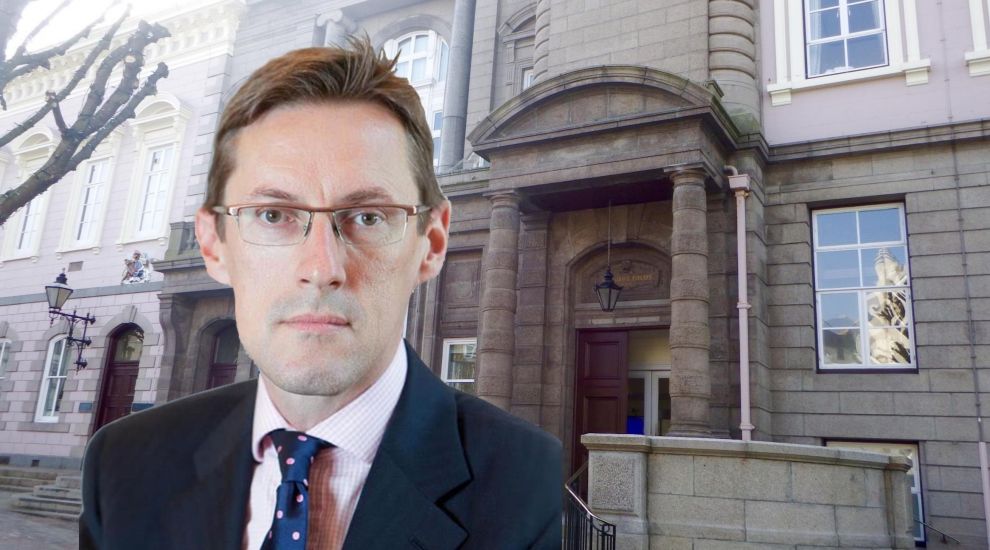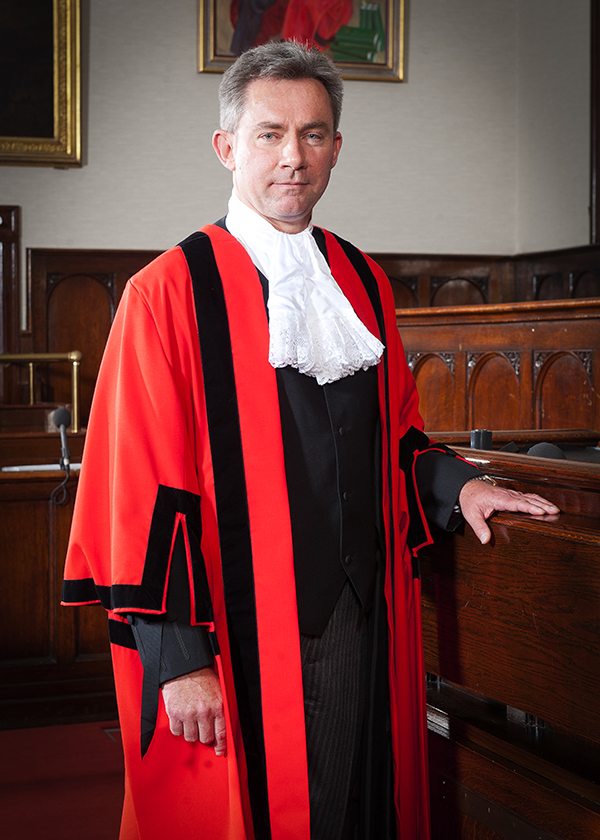

The former Chief Minister is to be grilled in open court over whether an eye surgeon was sacked from the hospital before starting work for raising safety concerns.
Senator Ian Gorst was previously part of the States Employment Board, which is being challenged by Jersey-born Dr Amar Alwitry, who had been offered a post as a consultant in ophthalmology at the General Hospital, but was later told his contract had been terminated before he was due to start on 1 December 2012.
He believes this was linked to him raising concerns over patient safety at the hospital, which the board hotly denies.
Senator Ian Gorst has been called to give evidence by Advocate Stephen Chiddicks, Dr Alwitry's defence counsel. Mr McNeela, a Consultant Ophthalmologist at the Hospital, will also be giving evidence.
Yesterday, the Solicitor General, Mark Temple, continued his cross-examination of Dr Alwitry. He asked Dr Alwitry about issues surrounding his starting date. Dr Alwitry says he wrote on his application form that he indicated he needed to give six months’ notice to his hospital in Derby. However, the Hospital asked him to start three months earlier, on a part-time basis, in December 2012, before moving on to full-time in February 2013.
Dr Alwitry said that he expected to start in winter 2012 but was never told he would be required to start in December 2012. The Solicitor General put to him that by refusing to start on that date he broke his deal with the hospital. Dr Alwitry said that was wrong. “They broke the deal because they wanted me to start earlier than advertised and earlier than my six-month’s notice,” he told the Court, adding that he would have made preparations if he had been told earlier of his starting date.
When the Solicitor General asked him if he had been focusing on his personal needs rather than his Jersey patients at the time, he denied it. He said that he had a duty of care to his patients in Derby and that it wasn’t ideal to leave them in three months. He also said he had a duty of care to his wife, and to his four children who were all under seven at the time. “Asking me to throw aside my family life altogether for this I don’t think that’s right,” he said
The Solicitor General put to Dr Alwitry that he was “trying to stir up dissension” among the hospital team by discussing timetable arrangements with different members of staff. Dr Alwitry denied this, saying it was nonsense and that he was being friendly in his email correspondence. “I completely refute that you are trying to turn this into an unpleasant email,” he said.

Pictured: The Solicitor General Mark Temple questioned Dr Alwitry yesterday.
Dr Alwitry also criticised the way one of his managers replied to his concerns. He said the man adopted a “take it or leave it” attitude, which he said was neither a nice stance to have, or an appropriate way to manage people.
“All I wanted was a reasonable explanation for why I was asked to fly back and forth, back and forth because the figures [for waiting times, ed.] didn’t add up. The business plan was that we needed a third consultant. There is no way we didn’t need a third consultant. The question was would one, two or three months start to actually sink the boat?” he told Court.
The surgeon also said that the timetable that was suggested to him “endangered his patients.” “I was not going to blindly say, ‘Yes, everything is fine’ when my patients could go blind. It was my role as a senior medical professional who published books on glaucoma to raise concerns. I never blinded anyone, I wasn’t about to start because my patients were not going to get appropriate after care…”
He denied trying to be divisive or to undermine his manager’s decisions. He added that voicing patient safety concerns should always be possible. “You shouldn’t shut people down, it should always be open,” he said, before continuing, “Everybody at the hospital is there for patient safety. I would do anything to protect my patients’ safety.”
Dr Alwitry also denied that his suggested changes to the timetable were anything else than an attempt to find a solution to an issue he had raised. “That is being professional, that is being courteous, that is good practice,” he told Court.
The case is being heard by Royal Court Commissioner Julian Clyde-Smith, sitting with Jurats Antony Olsen and Geoffrey Grime. It is expected to conclude in early October.
Comments
Comments on this story express the views of the commentator only, not Bailiwick Publishing. We are unable to guarantee the accuracy of any of those comments.